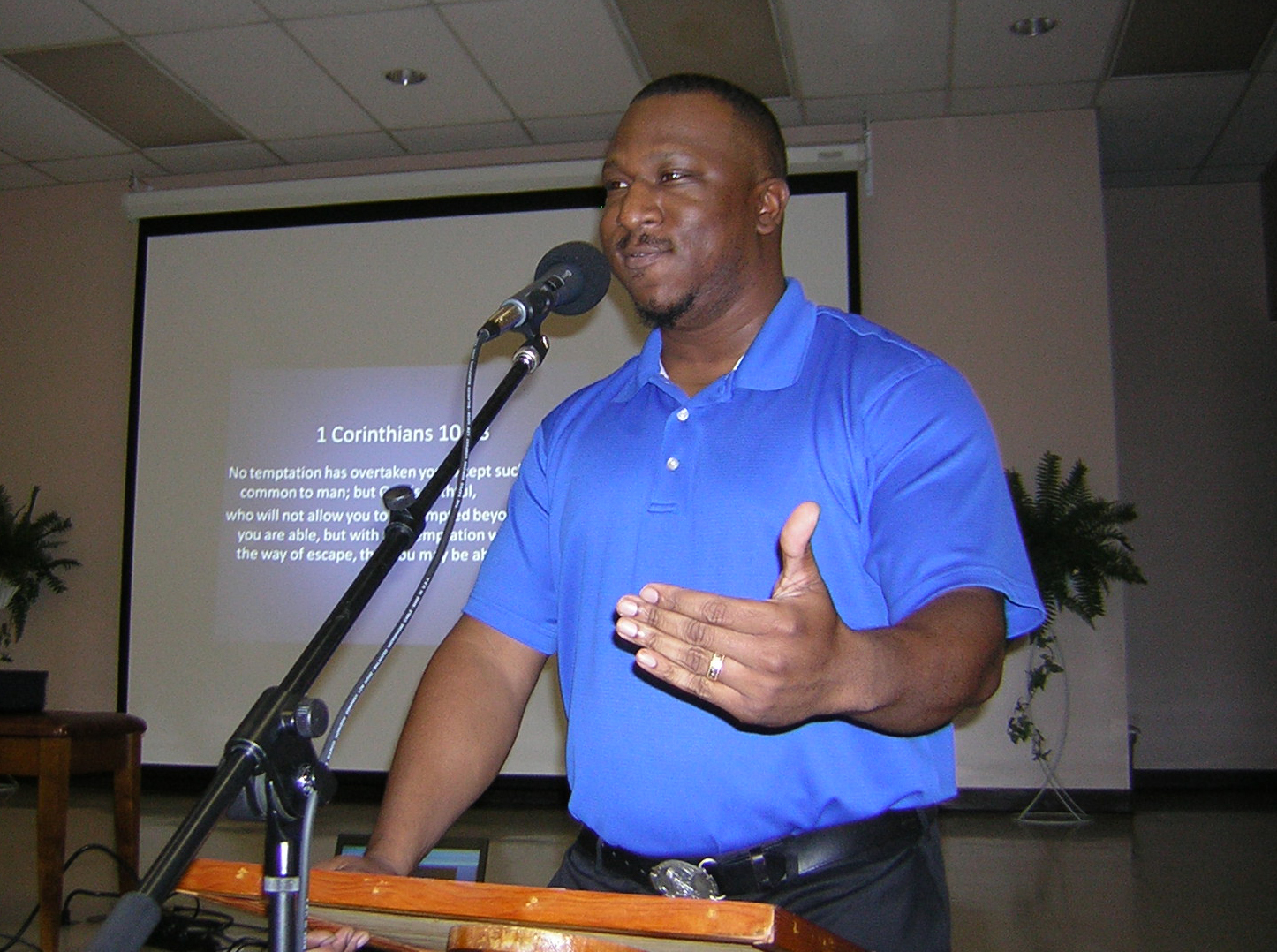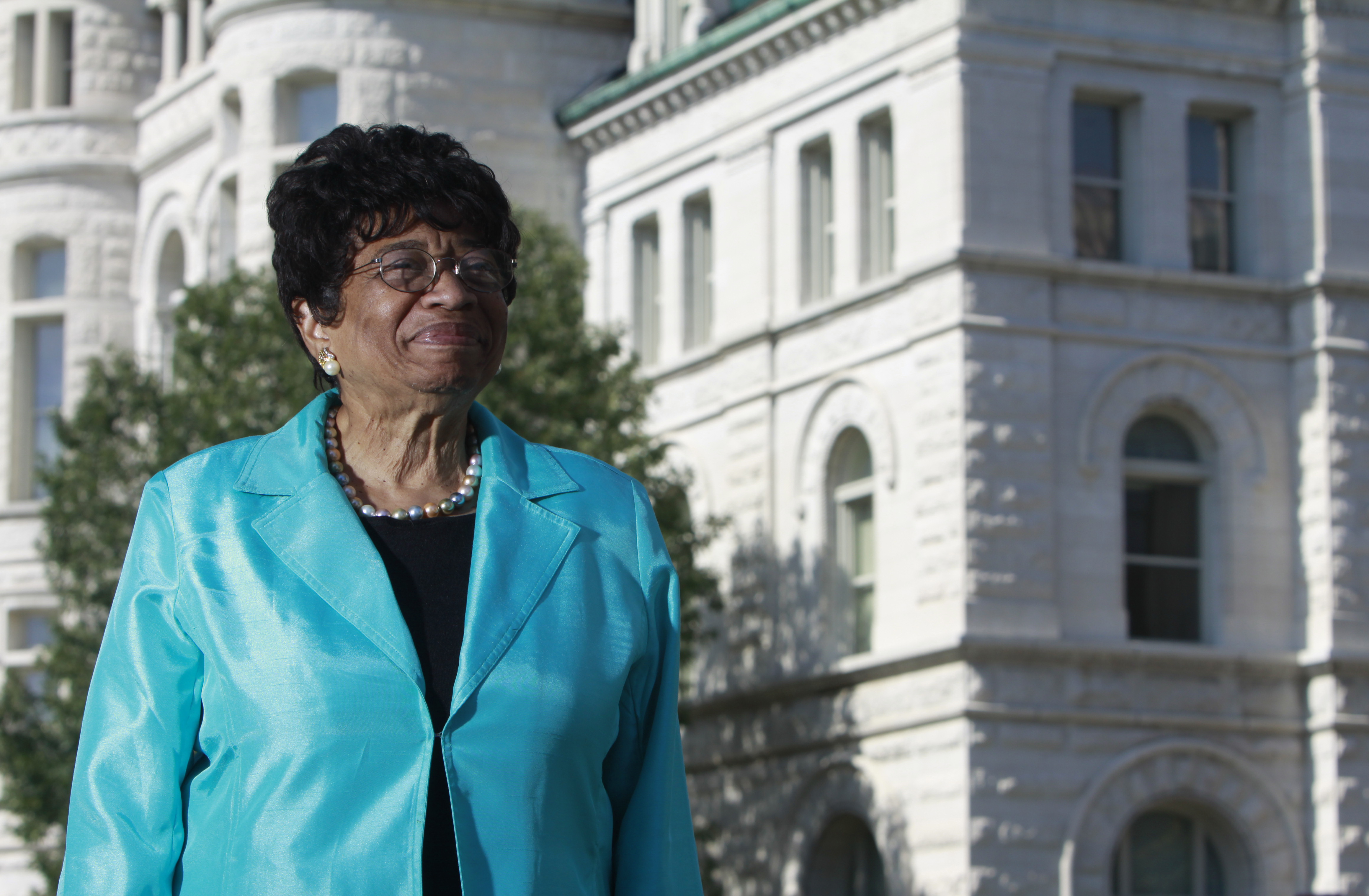State Rep. Tommie Brown, D-Chattanooga, expressed wariness Saturday of efforts in the state Legislature to toughen penalties for gang crimes.
The Tennessee General Assembly is considering whether to include gang violence in crimes that may be prosecuted under the state's Racketeer-Influenced and Corrupt Organizations Act, known as RICO.
Speaking at the 28th Legislative District Assembly's extraordinary session at Howard School of Academics and Technology, Brown said she's cautious because she doesn't think everyone affiliated with gangs is a criminal. Some of them are just wannabes wearing colors, she said.
"Show me something other than just throwing the net and dragging our babies into jail," she said. "What else is out there? Where are the jobs?"
Genocide comes when a society loses hope, Brown said, admonishing constituents to learn about the RICO Act and express informed opinions. For instance, she said, the city's curfew law could be used to control some gang violence if it was enforced, she said.
"Too many of our babies are dying before they even know what's across the mountain. Too many of our parents don't have sufficient income to provide for their children in such a way to give them hope," she said.
Mark Gwyn, director of the Tennessee Bureau of Investigation, and Boyd Patterson, coordinator of Chattanooga's anti-gang task force, attended the session.
Gang crimes under the RICO Act would be class B felonies, and offenders could be sentenced to 12 to 20 years in prison, no probation.
Patterson favors tougher laws.
"It's pretty severe, but it goes after the top criminals. For us to be allowed to use it against gang members, it allows us to take out not just one, two or three gang members, but 12, 15, 25 gang members at a time if they satisfy the definitions of RICO and the gang statues," Patterson said earlier.
Patterson said a number of filters are in place to ensure the RICO Act is used only against serious criminals.
Gwyn said increasing gang violence is a statewide concern.
He said the Tennessee Bureau of Investigation will immediately start using its fusion centers, established after 9/11 to combat terrorism, to collect and disseminate information concerning gangs and gang activity.
"Gangs are mobile," Gwyn said. "They travel, and it's important that we have a consolidated effort in gathering intelligence surrounding gangs and what their activities are."
He said information about a gang in a small, rural area once might have remained in that area. Now, he said, the information will be disseminated so law enforcement will have a statewide database about gang activity.
Brown's event was among several focused on addressing gang activity this weekend.
Local leaders and ministers met for a prayer breakfast Saturday, and dozens of youths met at Second Missionary Baptist Church to discuss gang prevention and how they can better position themselves to get jobs.
Former gang member Samuel Ervin, 21, said young people join gangs because of their environment.
In his case, he said, his mother worked and there was no father in the home, so he was unsupervised. He eventually joined a gang and, at 17, went to jail for four years on a drug charge. He got out in 2011.
"It's a challenge not to get in a gang," Ervin said. "But it's a challenge taking a beating to be in a gang and taking a bullet. I'd rather be worried about getting good grades in school."


